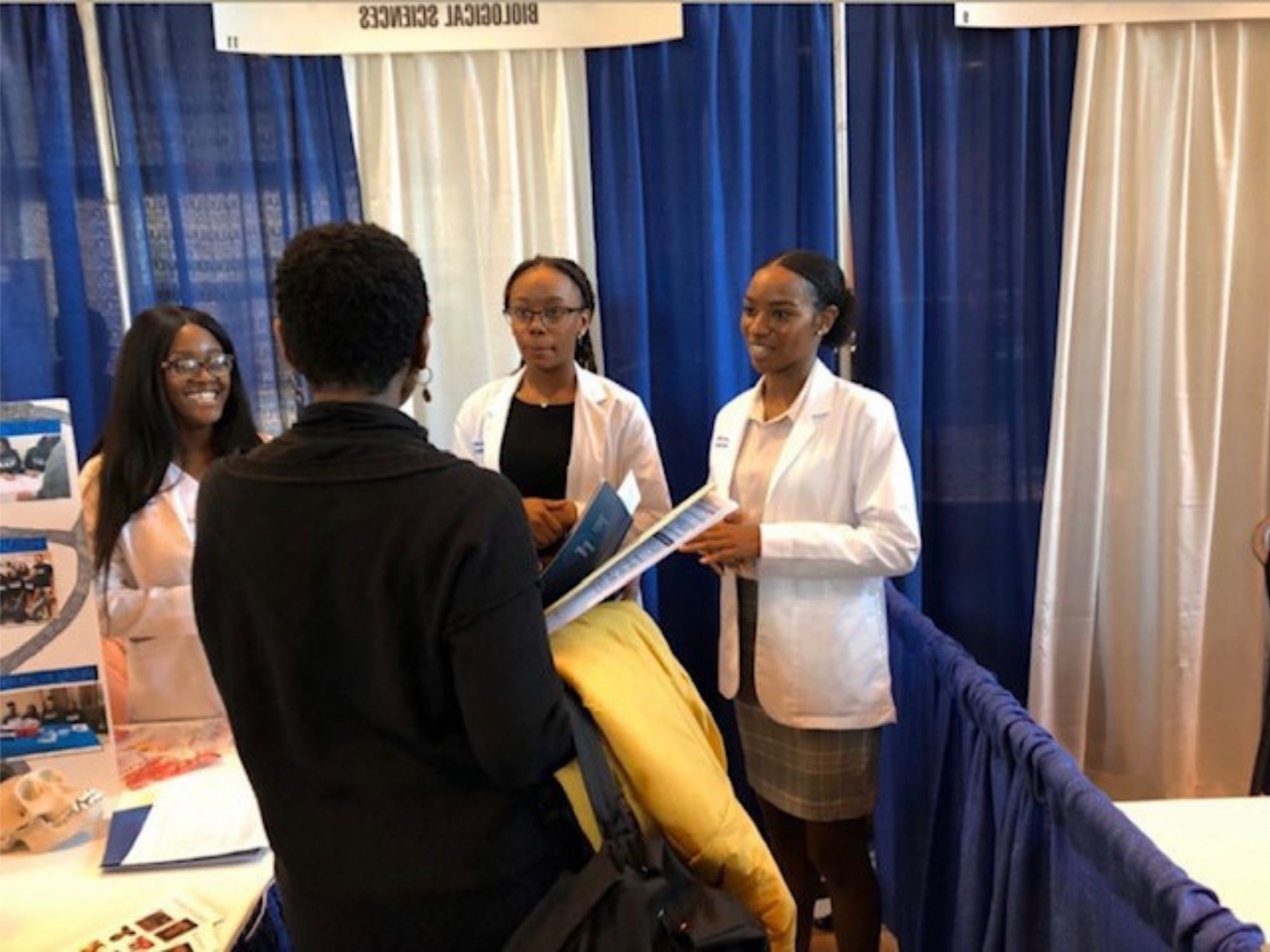
Educating the youth and paving a way for them to accomplish their goals and dreams is something that Sharronda Hayes, one of our Ambassadors, loves to do. She volunteers at Hampton University’s Biology department as a mentor of their youth mentorship program. For her, being a mentor is more than teaching new things, it is also about establishing a connection and nurturing a relationship for the long run.
We met with Sharronda Hayes (SH) to go over her Day of Giving experience and her participation in her department’s mentorship program.
AC: For your Day of Giving, what did you do?
SH: My school, Hampton University, hosted a charity event to raise money for different kids’ charities. I am a department of biological science student, so we had a showcase to raise money for The Center for Child and Family services, and also the Protecting Children Foundation.
AC: Can you tell us a bit about the organization?
SH: Yes. The protecting children foundation is a local foundation in Virginia Beach. Our department chair is on their local board. This foundation raises awareness and education for abuse in children, and they use education to keep kids clean and sober. Every quarter, we mentor some of those kids on our campus to help motivate them about education and learn about college.
On the other hand, The Center for Child and Family Services helps with counseling services for disrupted services. Most of our mentees receive free counseling services through their program.
AC: Is this a year-round mentorship program?
SH: Yes, and they learn so much. They get to be with us throughout or day of classes and social activities.
AC: Do you actively participate on it? Can you tell us more about how it works?
SH: I do participate in it. When it comes to how it works, there is a sign-up list that is posted in the organizations with the interests of the kids. They get to select things that they would be interested in and also describe what kind of person they would feel comfortable with. We don’t force mentors on them because some of them don’t want to be mentored by a woman or a man. Once they sign up, our chair partners us with them by hosting a campus tour event. Afterwards, we have lunch with them, show them around all the buildings, and we start off by trying to build a connection. After a weekend of events, they decide if they want to be mentored and by whom. Once that process starts, every month they would come visit us on campus. During these visits, we mainly take them around our science buildings and labs, so they get to see the cool things we do, what we learn, and a lot of my mentees are able to talk about what they want to do in life.
AC: Are there any requirements for the mentors?
SH: Yes, to be in the program you have to be at least a sophomore with a 3.4 GPA.
AC: Is this mentorship program only for your department or is it something the whole University takes part in?
SH: This program is only for our department. Other departments in our school have programs as well, but I am not sure the details.
AC: Awesome! It’s great to see the department take this sort of initiative, what motivated you to join the program?
SH: I joined because I am a non-traditional student. I joined the military after high school because I did not know anything about college. In my family, college was never talked about. Once I learned about it, it was the best thing I ever did. I want to be able to help and educate other people as well.
AC: Agreed, it is important to know all the available options in life before making a decision. So, how has been your experience while mentoring?
SH: My experience has been great. I’ve built a personal relationship with most of them. I feel like I have gained little brothers/sisters. They are able to come to me about anything.
AC: What would you say to encourage others to give back?
SH: I would say that the help you give others leaves a huge impact on them, and it also teaches you about yourself. I would want other people to participate to be able to help guide other people. A lot of children do not have the knowledge that we have.
AC: Lastly, is there anything you’d like to tell our readers before we go?
SH: I would like to tell people that if they have a chance to volunteer or mentor to do it!